Exclusive:Pressure mounts on Creative Scotland after new funding snub for Edinburgh Festival Fringe
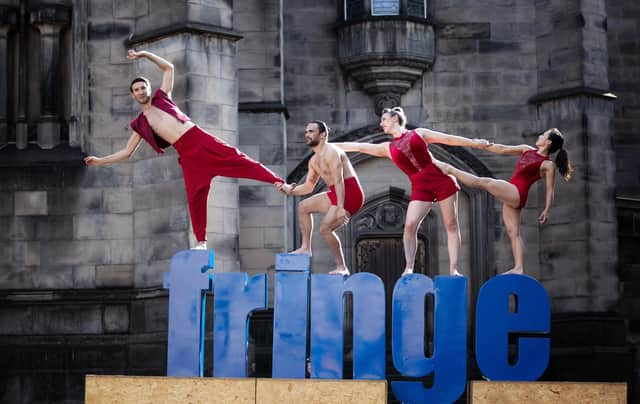

Organisers of Scotland’s biggest cultural event have ramped up pressure on the Scottish Government’s arts funding body as they revealed that they have been snubbed for support for the second time in a month.
The Edinburgh Festival Fringe Society is demanding an overhaul of how culture funding is allocated in Scotland after a bid to secure £155,000 to help artists appearing at the event was rejected.
Advertisement
Hide AdAdvertisement
Hide AdThe funding would have been used to help pay for its artist services programme, which offers year-round support and advice on how to bring a show to the Fringe and navigate the event, as well as a programme of events, workshops and advice sessions during each festival.
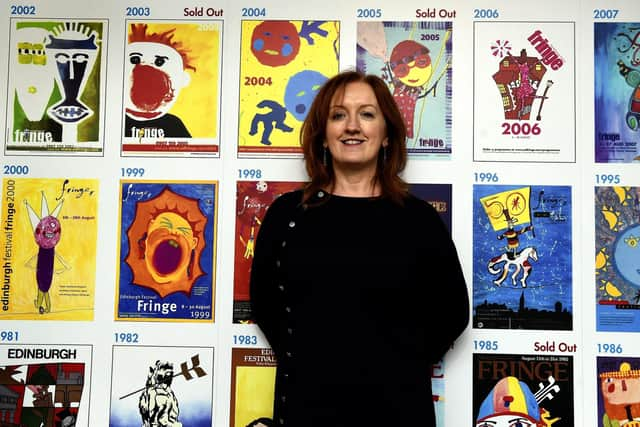

A spokeswoman said the funding rejection, which has emerged ahead of hundreds of festival tickets going on sale this week, would “undoubtedly have an impact on an already fragile funding landscape for the Fringe Society.”
The charity, which has been overseeing the festival since 1958, is now calling for an urgent rethink of current priorities “before the heart of our nation’s cultural landscape is changed in ways that may not be recoverable.”
Fringe Society chief executive Shona McCarthy has pointed out that it was turned down for funding in the same week that the Scottish Government championed the event in a new international cultural strategy.
Its blueprint, which features street performers entertaining huge crowds on the Royal Mile, describes Scotland’s festivals are “world-leading” and a “key cultural asset.”
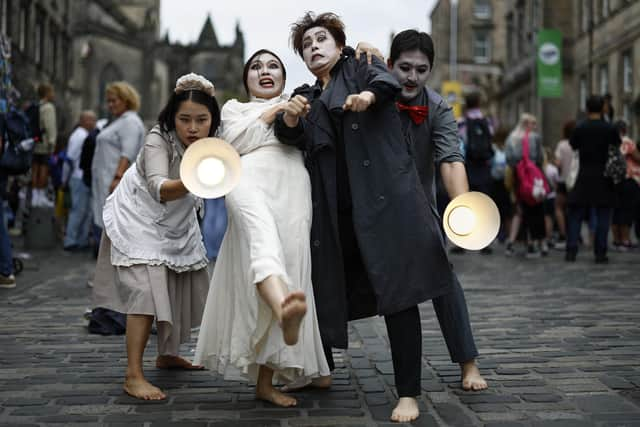

A separate culture vision published by the government in January hails the Fringe as an “economic powerhouse,” and highlights how it has inspired more than 200 other events around the world and attracted performers from more than 150 countries in recent years.
However earlier this year the Fringe Society warned that the event was at increasing risk because it was being allowed to “fall through the cracks” of public funding support, telling the Scottish Parliament: “There remains no strategic or joined up approach to supporting this incredible cultural phenomenon.”
Advertisement
Hide AdAdvertisement
Hide AdMs McCarthy recently demanded “urgent clarity” from the Scottish Government on how it would be distributing the £100m it has promised in new investment for the cultural sector after the Fringe Society failed to get to the second stage of Creative Scotland’s long-term funding application process.
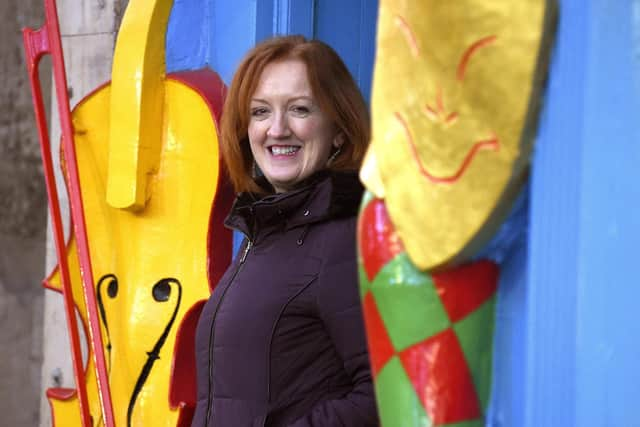

Last year she warned that there was “level of complacency” about the future of the Fringe, and suggested it was facing an “existential threat” due to the impact of rising costs on companies, performers and venues.
Ms McCarthy said: “For the second time in a month, the Fringe Society has had a funding application to Creative Scotland rejected, in the same week that the Scottish Government announced its new International Culture Strategy which prominently featured the Fringe.
"There is an urgent need for Scotland's cultural and funding bodies to review their current frameworks before the heart of our nation’s cultural landscape is changed in ways that may not be recoverable."
A spokeswoman for Creative Scotland said: “We are pleased to have been able to continue to award over £2.7 million to the Edinburgh Festival Fringe Society in the last six years through a variety of funding routes including the PLaCE and EXPO funds, and they will continue to be eligible to apply to these funds.
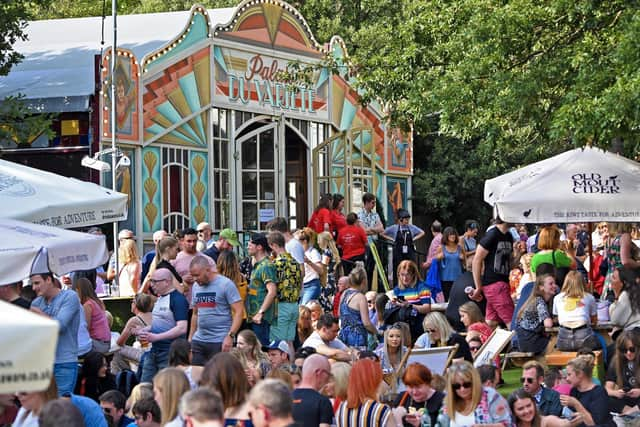

"As demand on other funds such as our open funds continues to increase, we are currently only able to support around 30 per cent of applications due to limitations on the money available to us, despite around 75 per cent of applications being recommended for funding.
"Whilst we continue to advocate for more resources to support culture and creativity across Scotland, the demand on current funds means that difficult decisions are having to be made on a daily basis.”
Advertisement
Hide AdAdvertisement
Hide AdThe government’s new international culture strategy states: "Scotland’s diverse festivals take place year-round all across the country and are a key cultural asset. Edinburgh is internationally renowned for the annual festivals programme which the city hosts throughout the year.
"All these festivals help showcase Scotland’s creative talents and innovation, bring the world to Scotland and enrich our domestic culture scene. Festivals connect Scotland’s creative sector with international peers and prospective producers which can also open up opportunities for the development of international careers.
"Scotland’s festivals are world-leading and a key cultural asset. They attract the world to Scotland, both practitioners and audiences, and enrich the domestic cultural scene. They also provide platforms for the development of Scottish artists’ careers and international connections. Internationalism has been at the heart of the Edinburgh festivals ever since they were founded in 1947."
The Fringe is also extensively featured in the Scottish Government's most recent vision for the future of culture in Scotland. It was launched weeks before Creative Scotland rejected the Fringe Society’s bid for its next long-term funding programme, which is expected to shape the country's cultural landscape between 2025 and 2028.
The culture vision states: "We are proud to host one of the world’s largest and best-known arts festivals – the Edinburgh Festival Fringe - as well as innovative grassroots festivals across the country.
"At their height in 2019, pre-pandemic, the world-renowned Edinburgh festivals drew an attendance of 4.96 million. As reported in the 2022 Edinburgh Festivals Impact study, they act as economic powerhouses that generated an estimated economic impact of £407 million in Edinburgh.
"Scotland’s festivals and major events benefit hugely from those who come to participate from elsewhere. The Fringe, for example, saw representation from 157 countries on and off stage, in 2019.
Advertisement
Hide AdAdvertisement
Hide Ad"Scotland’s festivals are already a role model for other countries, with many adapting their own versions of our festivals – for example the Fringe has inspired over 200 equivalents around the world under the banner of World Fringe across all corners of the globe including in Melbourne, O’ahu, Lagos and Seoul."
The snub for the Fringe has emerged days after it was revealed that one of the country’s biggest literary events had been called off after it was turned down for Creative Scotland funding.
First Minister Humza Yousaf praised Glasgow’s Aye Write festival as a "cultural icon" and pledged the Scottish Government would investigate how it could support the event within hours of concerns being raised by his predecessor, Nicola Sturgeon, who appeared at last year’s event and is due to publish a memoir next year.
Comments
Want to join the conversation? Please or to comment on this article.

